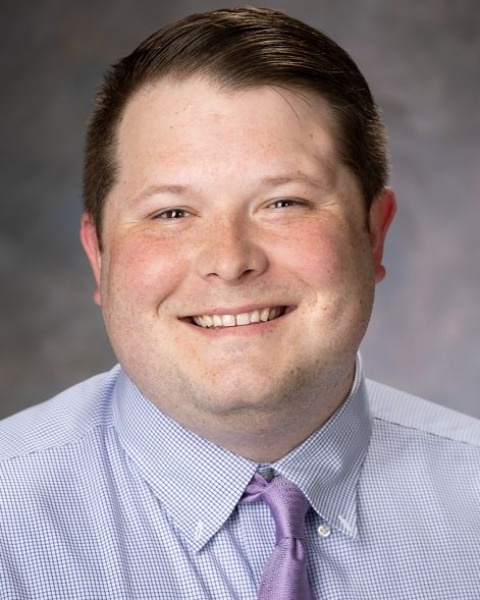Medical Education 7: DEI
Session: Medical Education 7: DEI
462 - LGBTQ+ Curriculum in Pediatric Emergency Medicine (PEM) Fellowship: A National Needs Assessment Analysis of PEM Fellows and Program Directors
Saturday, April 26, 2025
2:30pm - 4:45pm HST
Publication Number: 462.5682
Zachary R. Panzer, Nationwide Children's Hospital, Columbus, OH, United States; Christopher D. Jones, Nationwide Children's Hospital, Columbus, OH, United States; Sara Helwig, Nationwide Children's Hospital, Columbus, OH, United States; Elizabeth Bonachea, Nationwide Children's Hospital, Columbus, OH, United States

Zachary R. Panzer, DO (he/him/his)
Pediatric Emergency Medicine Fellow
Nationwide Children's Hospital
Columbus, Ohio, United States
Presenting Author(s)
Background: Although there has been an expansion of LGBTQ+ curriculum in graduate medical education, there are no studies that evaluate the current state of LGBTQ+ curriculum in pediatric emergency medicine (PEM) fellowships.
Objective: We aimed to evaluate: (1) the current state of curriculum dedicated to LGBTQ+ topics and patient population in pediatric emergency medicine fellowships and (2) the current knowledge and attitudes of PEM fellows and program directors (PDs) relevant to the care of LGBTQ+ youth.
Design/Methods: We developed and disseminated an anonymous electronic survey via REDCap® from January to March 2024 to all current PEM fellows and PDs through the American Academy of Pediatrics’ Section on Pediatric Emergency Medicine PEM PD Survey Committee.
Results: We had a response rate of 26% of PEM fellows (71/268) and 31% of PEM PDs (27/87) with representation from all regions of the United States. 78% of PEM fellows and 63% of PDs were not satisfied with their current education on LGBTQ+ topics in their fellowship program. 24% of PEM fellows and 11% of PDs reported not receiving any LGBTQ+ education in their PEM fellowship program. Over 90% of PEM fellows and 70% of PDs believed it was important to understand LGBTQ+-related topics as a physician. Topics that PEM fellows and PDs reported as commonly missing from their current curricula included LGBTQ+-related terminology, national and local resources available to this patient population, and clinical indications for PrEP, PEP and gender-affirming care. PEM fellows reported to be only somewhat confident in their ability to incorporate content on the LGBTQ+ population and health care into their future practices.
Conclusion(s): The majority of current PEM fellows and PDs are not satisfied with their current curriculum on LGBTQ+-related topics. Opportunities for improvement at the program level include implementation of commonly missed LGBTQ+-associated topics in current fellowship curriculum. National opportunities include the creation of a standardized curriculum for PEM LGBTQ+-focused care.

